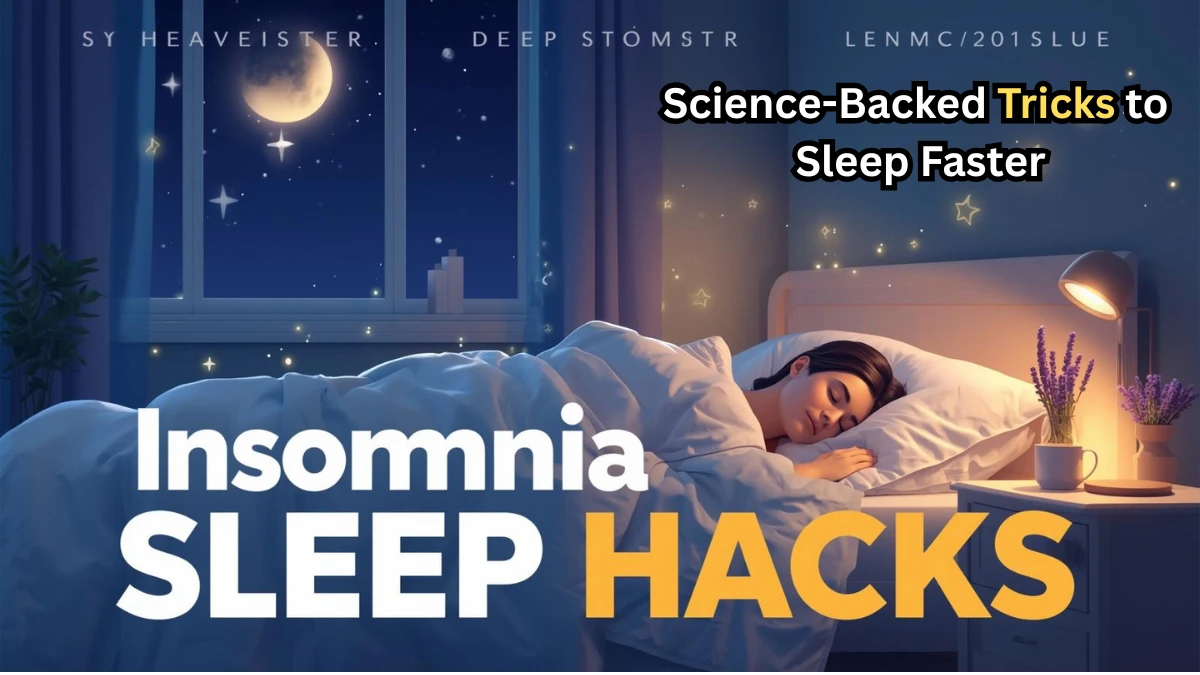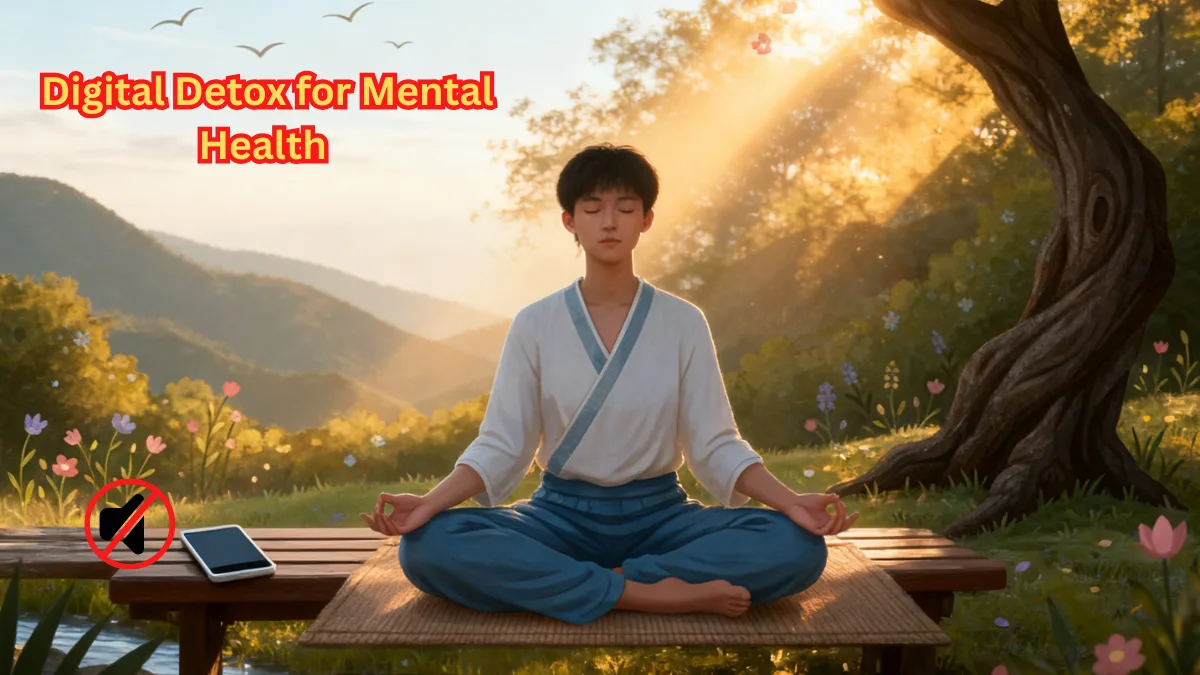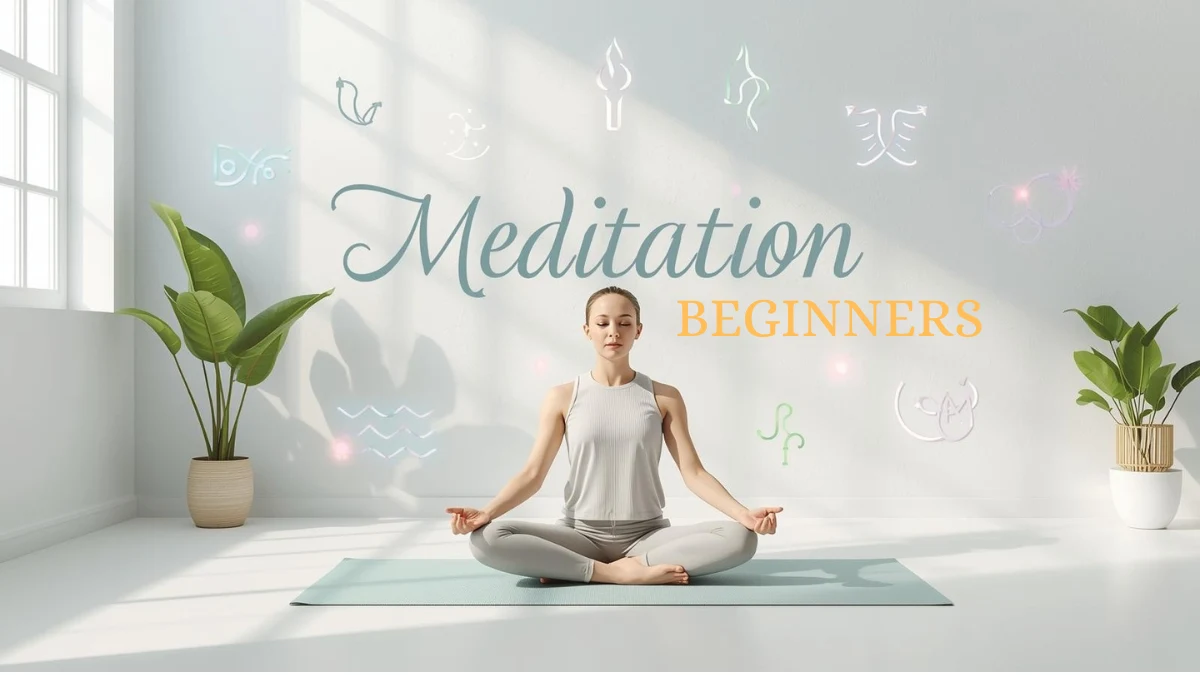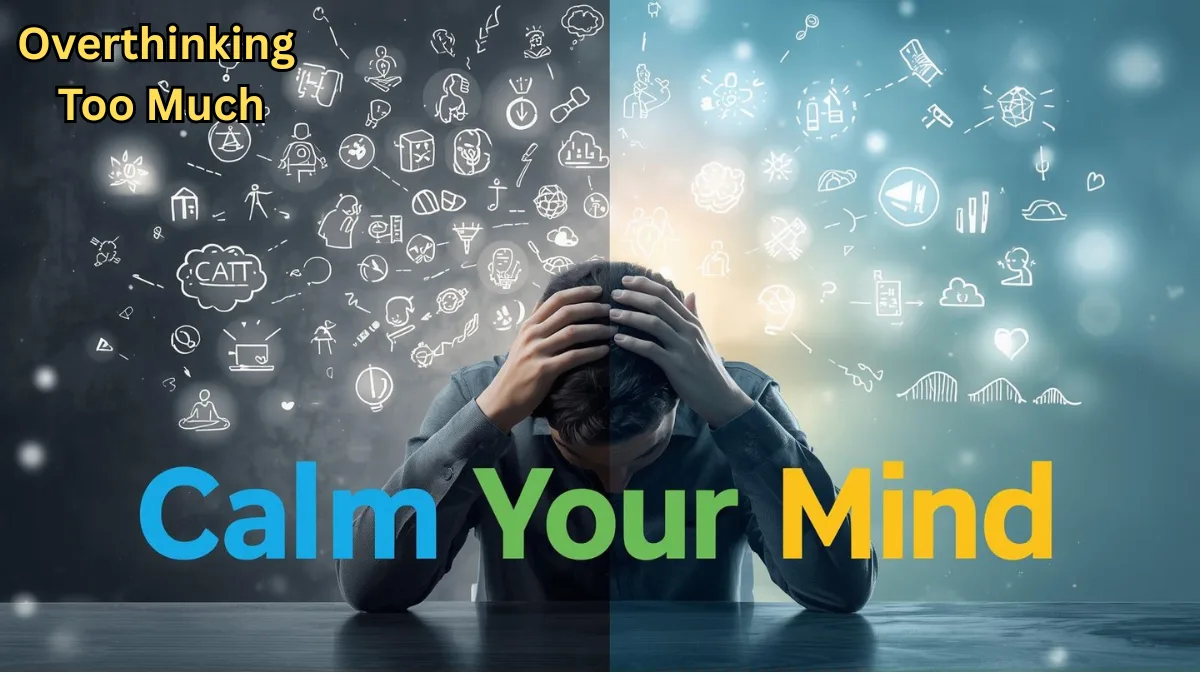😴 Struggling with insomnia? Discover 9 science-backed tricks to fall asleep faster, improve sleep quality, and wake up refreshed tonight. Natural remedies, tips, and expert advice included!
Insomnia affects millions worldwide, leaving people tired, irritable, and unproductive. Chronic sleep deprivation can impact mental health, cognitive performance, and physical well-being. 🧠
The good news? There are science-backed methods to improve sleep naturally and effectively. In this article, we explore 9 proven tricks to help you fall asleep faster, stay asleep, and wake up refreshed.
1️⃣ Maintain a Consistent Sleep Schedule ⏰
Going to bed and waking up at the same time every day helps regulate your body’s circadian rhythm. This makes falling asleep and waking up naturally easier.
Answer:
Set a fixed bedtime and wake-up time, even on weekends. Over time, your body will adjust, reducing sleep onset latency.
Scientific Backing 🔬:
Studies show that consistent sleep schedules improve sleep quality by 20–30% and reduce insomnia symptoms.
2️⃣ Create a Relaxing Bedtime Routine 🌙
A calming pre-sleep routine is one of the most effective ways to signal your brain that it’s time to wind down. Consistently following a nighttime ritual not only improves sleep quality but also helps reduce stress, anxiety, and insomnia symptoms.
🔹 Effective Techniques for a Calming Nighttime Routine
- Reading a Book 📖 – Choose something light or uplifting. Avoid thrillers or work-related material that can increase alertness. Reading for 15–20 minutes helps shift your mind away from daily stressors and prepares it for relaxation.
- Taking a Warm Bath 🛁 – A warm bath or shower relaxes muscles, reduces tension, and triggers a drop in core body temperature, which naturally promotes sleepiness. Adding essential oils like lavender or chamomile can enhance relaxation.
- Practicing Deep Breathing or Meditation 🧘♂️ – Techniques like 4-7-8 breathing, progressive muscle relaxation, or guided meditation calm the nervous system, lower cortisol levels, and reduce racing thoughts. Even 10–20 minutes can make a significant difference.
🌟 Real-Life Case Study
Sarah, 32, struggled with falling asleep due to work stress and frequent late-night screen use. By implementing a 20-minute nightly meditation session combined with a warm bath, she noticed that she fell asleep faster, experienced longer deep sleep phases, and woke up feeling refreshed within two weeks.
👩⚕️ Expert Insight
“Creating a pre-sleep routine reduces cortisol, calms the nervous system, and prepares the body for restorative sleep,” says Dr. Anjali Desai, Sleep Specialist. “Even small changes like reading or meditation before bed can dramatically improve sleep quality over time.”
3️⃣ Limit Exposure to Blue Light Before Bed 📱💡
In today’s digital age, exposure to blue light from phones, laptops, tablets, and TVs is one of the leading causes of sleep disruption and insomnia. Blue light interferes with your brain’s production of melatonin, the hormone responsible for regulating your sleep-wake cycle. When melatonin levels are suppressed, your body struggles to recognize when it’s time to sleep, making falling asleep faster and staying asleep much harder.
🔹 Why Blue Light Affects Sleep
- Melatonin suppression: Blue light exposure in the evening delays the natural release of melatonin, shifting your circadian rhythm.
- Increased alertness: Screens stimulate the brain, keeping it in an active state even when your body is ready for rest.
- Sleep quality reduction: Even if you fall asleep, exposure to blue light can reduce REM and deep sleep, leaving you tired the next day.
🔹 Actionable Tips to Reduce Blue Light Exposure
- Avoid screens 1–2 hours before bedtime: Put away your phone, laptop, and TV to give your brain a chance to wind down naturally.
- Use blue-light filters or night mode: Most devices now have settings to reduce blue light emission. While not a complete solution, it can minimize its impact.
- Read a physical book or use e-readers with warm light: Opt for paperbacks or e-readers with amber lighting instead of backlit screens.
- Dim household lighting: Switch to warm, low-intensity lamps in the evening to signal your body that it’s nighttime.
🌟 Real-Life Example
Alex, 29, struggled to fall asleep until midnight every night due to late-night social media scrolling. By turning off his devices 90 minutes before bed and switching to reading a paperback, he noticed a faster sleep onset and improved sleep quality within a week.
🔬 Scientific Backing
Research published in the Journal of Clinical Sleep Medicine indicates that even 30 minutes of screen exposure before bed can delay sleep onset by up to 20 minutes and significantly reduce overall sleep quality. Studies also show that reducing blue light exposure improves REM sleep, deep sleep, and next-day cognitive performance.
Expert Quote 👩⚕️:
“Limiting screen time before bed is one of the simplest and most effective ways to naturally improve sleep. Blue light tricks the brain into thinking it’s daytime, making it harder to wind down,” explains Dr. Anjali Desai, Sleep Specialist.
Tip: Combine blue light reduction with a calming bedtime routine like reading or meditation to maximize sleep benefits.
4️⃣ Optimize Your Sleep Environment 🛏️
Your bedroom should be conducive to sleep. Tips include:
- Keep the room cool, dark, and quiet 🌌
- Use comfortable bedding
- Consider white noise or blackout curtains
Answer:
A well-optimized sleep environment reduces night awakenings and improves deep sleep.
Real-Life Example:
James installed blackout curtains and a white-noise machine, resulting in faster sleep onset and uninterrupted sleep.
5️⃣ Mind Your Diet and Avoid Stimulants 🍵
What you eat and drink affects sleep quality. Avoid:
- Caffeine ☕ (coffee, energy drinks) after 2 PM
- Heavy meals close to bedtime
- Alcohol (disrupts REM sleep)
Answer:
Opt for light, nutritious dinners and consider sleep-promoting snacks like:
- Bananas 🍌
- Almonds 🌰
- Chamomile tea 🌿
Scientific Backing 🔬:
Caffeine can delay sleep onset by up to 60 minutes, while magnesium-rich foods promote relaxation.
6️⃣ Practice Relaxation Techniques Before Bed 🧘♀️
Deep breathing, progressive muscle relaxation, and guided imagery help calm the nervous system.
Step-by-Step Guide:
- Lie down comfortably
- Take deep breaths in for 4 seconds, out for 6 seconds
- Relax each muscle group progressively from toes to head
- Visualize a calming scene
Real-Life Case Study:
Rina, 29, struggled with racing thoughts. 10 minutes of deep breathing and visualization reduced her sleep latency from 45 minutes to 15 minutes.
7️⃣ Get Natural Sunlight Exposure During the Day ☀️
Exposure to sunlight regulates circadian rhythms, helping your body produce melatonin at night.
Answer:
Spend at least 30 minutes outdoors daily, especially in the morning. This improves sleep quality and mood.
Scientific Backing 🔬:
Studies show that morning sunlight exposure improves sleep efficiency by 25% in individuals with insomnia.
8️⃣ Exercise Regularly 🏋️♂️
Regular physical activity reduces stress and promotes deeper, restorative sleep.
Answer:
- Aim for 30–45 minutes of moderate exercise daily
- Avoid intense workouts within 2 hours of bedtime
Real-Life Example:
Alex, 35, incorporated evening yoga and morning walks. He reported falling asleep faster and waking up more refreshed.
Scientific Backing 🔬:
Exercise increases slow-wave sleep, the deep sleep phase critical for mental and physical recovery.
9️⃣ Consider Natural Sleep Aids 🌿
Certain herbs and supplements help promote relaxation:
- Melatonin – regulates sleep-wake cycle
- Valerian root – improves sleep latency
- Chamomile & Lavender – calm the nervous system
Answer:
Consult with a healthcare professional before starting supplements. Herbal remedies can be effective with consistent use.
Expert Quote 👩⚕️:
“Herbal sleep aids, when combined with proper sleep hygiene, significantly improve sleep quality without side effects.” – Dr. Rajiv Mehta
Bonus Tips for Better Sleep 🌙
- Keep a sleep journal 📝 to track patterns
- Avoid napping late in the day
- Practice gratitude or mindfulness meditation before bed
- Limit fluid intake before bedtime to prevent night awakenings
📚 Sources (credible references)
- National Sleep Foundation – https://www.thensf.org
❓ FAQs Section
Q1: How long does it take to overcome insomnia naturally?
A: Most people notice improvements within 2–4 weeks with consistent sleep hygiene and relaxation practices.
Q2: Can anxiety worsen insomnia?
A: Yes, anxiety triggers racing thoughts, making it harder to fall asleep. Relaxation techniques are essential.
Q3: Are sleep supplements safe?
A: Some natural supplements like melatonin and chamomile are safe, but consult a doctor if taking other medications.
Q4: What is the best time to exercise for better sleep?
A: Morning or afternoon is ideal. Avoid intense evening workouts within 2 hours of bedtime.
Q5: Can diet improve sleep naturally?
A: Yes! Avoid caffeine, heavy meals, and alcohol before bed. Include magnesium-rich and sleep-promoting foods.
💬 Call-to-Action
- “Which of these 9 tricks will you try tonight to sleep better? Comment below!”
- “Share this guide with friends and family struggling with insomnia!”
✅ Conclusion:
Insomnia doesn’t have to rule your life 😴. By combining sleep hygiene, relaxation techniques, exercise, diet, natural sleep aids, and sunlight exposure, you can fall asleep faster, sleep deeper, and wake up refreshed.
Start implementing these 9 science-backed tricks tonight and say goodbye to restless nights! 🌙










